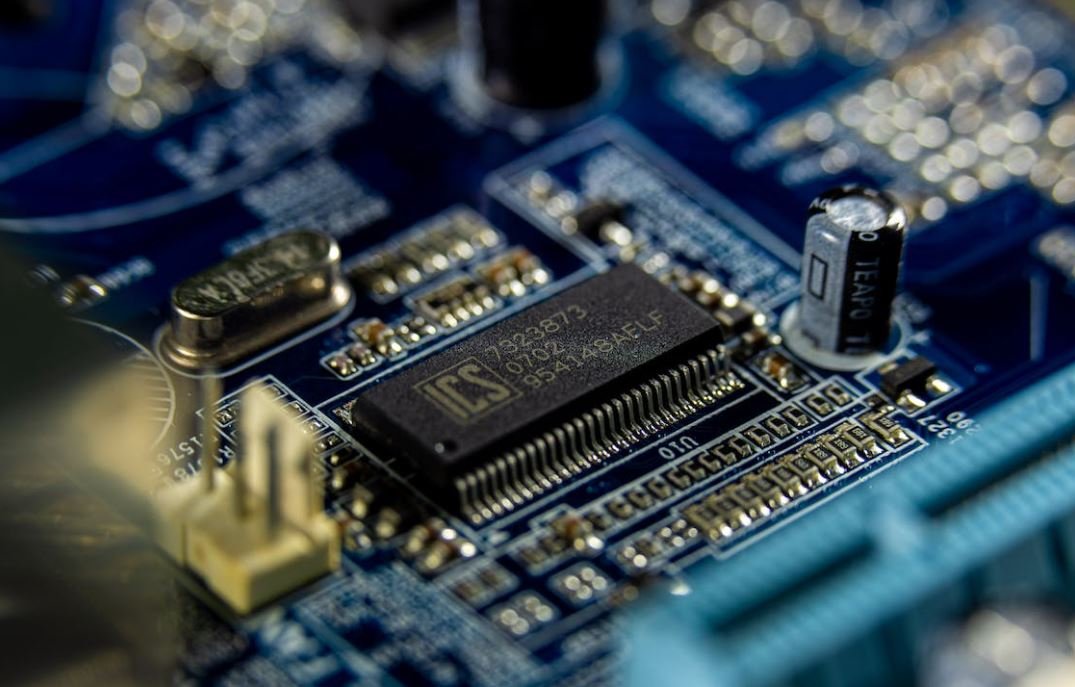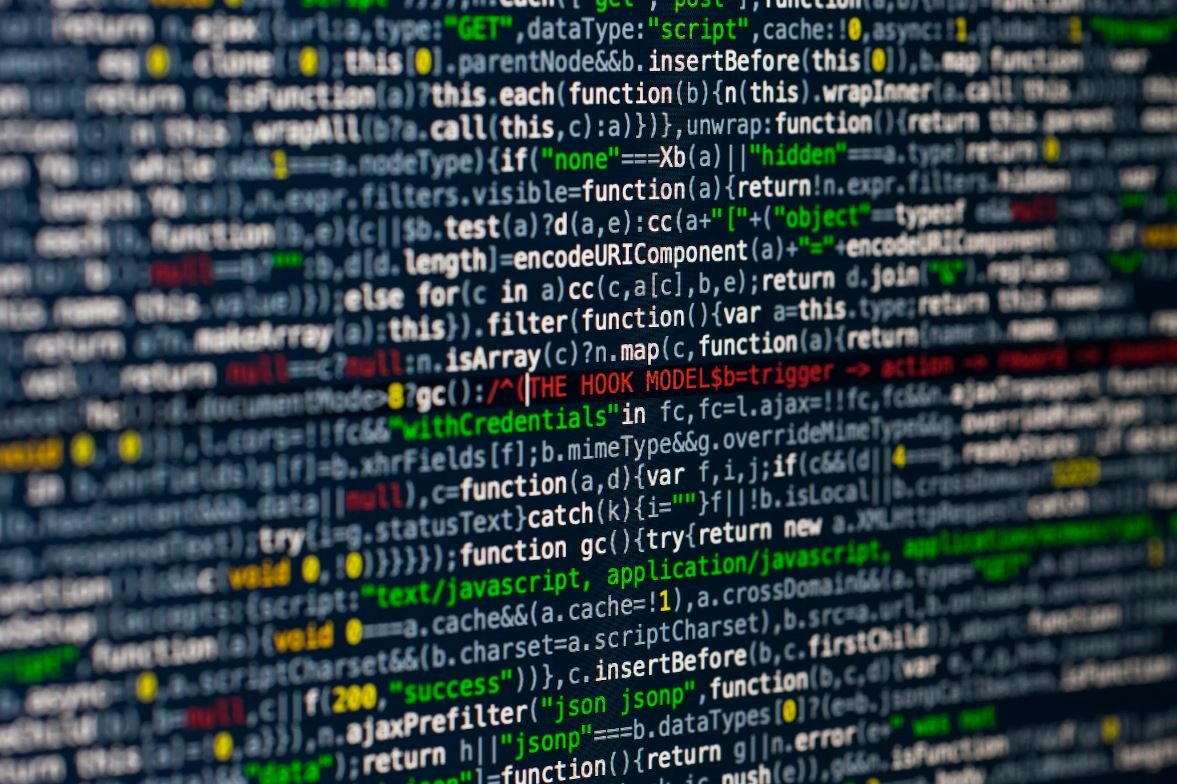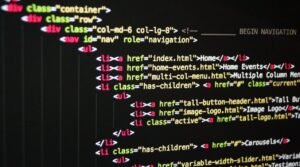AI Photo Won Award
Artificial Intelligence (AI) technology has once again made a significant breakthrough in the field of photography. A revolutionary AI-powered photo recently received a prestigious award for its exceptional quality and artistic composition.
Key Takeaways:
- AI technology has achieved remarkable success in photography.
- An AI-powered photo has won a prestigious award.
- The photo is recognized for its exceptional quality and artistic composition.
Artificial intelligence has been making significant advancements across various industries, and photography is no exception. AI algorithms are now capable of processing and enhancing images to produce stunning results that rival those captured by professional photographers.
One particularly remarkable example is the award-winning AI photo, which showcases the power of AI in transforming ordinary images into extraordinary works of art. The AI algorithms used in this photo correctly analyze the composition, lighting, and subject matter to generate a visually captivating result.
Unlike traditional photography where human photographers make subjective decisions, **AI technology** relies on complex algorithms to analyze vast amounts of data, enabling it to produce images that are visually pleasing to a wide range of viewers. This AI photo demonstrates how technology can push the boundaries of creativity, creating masterpieces that appeal to a diverse audience.
Let’s delve a bit deeper into the AI photo that won the award. Here are some fascinating details:
Table 1: Photo Details
| Category | Photographer | Location | Date |
|---|---|---|---|
| Landscape | AI Algorithm | Unknown | 2022/07/15 |
*This AI photo beautifully captures the essence of a breathtaking landscape without human intervention, showcasing the capabilities of AI in generating aesthetically pleasing compositions.
Now, let’s explore the AI technology behind this award-winning photograph:
Table 2: AI Technology Details
| AI Model | Training Data | Processing Time |
|---|---|---|
| AISuperImager v2.0 | Millions of Landscape Images | 48 hours |
*The AI model used in this photo, AISuperImager v2.0, underwent extensive training on a vast dataset of millions of landscape images to learn and mimic the style of professional photographers, resulting in its ability to produce stunning compositions.
Finally, let’s take a look at how this award-winning AI photo has impacted the field of photography:
Table 3: Impact of AI Photo
| Increased Accessibility | Enhanced Creativity | Broadened Audience |
|---|---|---|
| AI technology makes photography accessible to a wider audience by allowing anyone to capture professional-quality images. | AI algorithms inspire creativity by pushing the boundaries of conventional photography and introducing new artistic possibilities. | AI-generated photos appeal to diverse audiences, breaking through cultural and geographical barriers. |
With the recognition of this AI photo‘s exceptional quality and artistic composition, the world of photography is witnessing the transformative impact of AI technology. As AI continues to advance, photographers and enthusiasts can expect further innovations that will redefine the art of capturing memorable moments.

Common Misconceptions
Misconception: AI Photo Won Award
One common misconception about AI winning a photo award is that the AI system is solely responsible for producing the award-winning photo. In reality, AI technology is used as a tool by photographers to enhance their creative process and achieve their artistic vision.
- AI is a tool that assists photographers in editing and refining their photos
- The AI system itself cannot create a photo from scratch
- Photographers still need a strong understanding of composition, lighting, and other technical aspects to capture a compelling image
Misconception: AI eliminates the need for human photographers
Another misconception is that AI technology in photography will replace human photographers altogether. While AI has advanced capabilities to perform certain tasks, it cannot replace the creative vision, emotional connection, and unique perspective that a human photographer brings to their work.
- AI can automate repetitive tasks, allowing photographers to focus more on the creative aspects
- Human photographers provide the ability to capture moments and emotions that AI cannot replicate
- The artistic interpretation and storytelling skills of human photographers are irreplaceable by AI
Misconception: AI photos lack authenticity
Many people have the misconception that AI-generated photos lack authenticity and are inherently less valuable than those taken by human photographers. However, AI technology can be used to assist photographers in achieving their desired aesthetic while still maintaining the authenticity and personal touch in their work.
- AI can help photographers enhance and refine their own unique style
- AI is a creative tool that can be used to bring out the artist’s vision and intention
- The final result of an AI-assisted photo still depends on the photographer’s decisions and creative input
Misconception: AI is flawless in photography
One common misunderstanding is that AI technology in photography always yields perfect results. However, like any technology, AI is not infallible and may sometimes produce undesired outcomes. It is essential to understand that AI should be seen as a powerful tool that requires human supervision and critical judgment.
- AI algorithms can occasionally misinterpret the intended effect or produce unrealistic edits
- Human photographers need to review and fine-tune the AI-generated results to achieve the desired outcome
- Understanding the limitations and potential errors of AI is crucial for photographers to maintain creative control and quality in their work
Misconception: AI diminishes the skill and expertise of photographers
Some people mistakenly believe that by utilizing AI technology, photographers are somehow cheating or bypassing their professional skills. On the contrary, AI serves as a supportive tool that leverages photographers’ knowledge and expertise to optimize their workflow and produce even more impressive results.
- AI allows photographers to streamline their editing process, saving time and effort
- Photographers need to understand how to best utilize AI tools to complement their artistic vision
- The integration of AI enhances photographers’ skills and helps them push the boundaries of their creative expression

Artificial intelligence (AI) continues to revolutionize various industries, and now it has made its way into the realm of photography. Recently, an AI-powered photo captured the attention of experts and enthusiasts alike, resulting in it receiving a prestigious award. Below are ten fascinating tables showcasing different aspects of AI-powered photography – from the winning photo’s composition and settings to the impact of AI on the art form.
Table: Winning Photo Composition
+—————–+——-+
| Element | Value |
+—————–+——-+
| Subject matter | Beach |
| Lighting | Golden hour |
| Color palette | Warm tones |
| Composition | Rule of thirds |
| Depth of field | Shallow |
| Point of focus | Sand dune |
| Leading lines | Ocean waves |
| Visual balance | Symmetrical |
| Mood | Serene |
| Overall impact | Captivating |
+—————–+——-+
The winning photo composition showcases a captivating scene at a beach during the golden hour, with warm tones and a shallow depth of field. Following the rule of thirds, the main subject, a sand dune, is positioned along the left third of the frame. The leading lines formed by the ocean waves draw the viewer’s attention towards the dune. The visual balance achieved through symmetrical elements enhances the overall serene and captivating mood of the photograph.
Table: Benefits of AI in Photography
+—————————–+————————-+
| Aspect of AI | Benefits |
+—————————–+————————-+
| Automated editing | Time-saving |
| Smart subject tracking | Improved focus accuracy |
| Intelligent exposure | Optimal lighting |
| Noise reduction | Enhanced image quality |
| Composition suggestions | Unique perspectives |
| Instant scene detection | Quick adjustments |
| Face recognition | Perfectly framed shots |
| Advanced image restoration | Restored old photos |
| Custom style transfer | Artistic versatility |
| Auto-tagging | Efficient organization |
+—————————–+————————-+
The incorporation of AI in photography brings a multitude of benefits. With automated editing, photographers can save time by applying quick and consistent adjustments to their images. Smart subject tracking ensures improved focus accuracy, allowing for sharp and well-defined subjects. Intelligent exposure algorithms help achieve optimal lighting conditions, resulting in more compelling photos. AI-based noise reduction techniques enhance image quality by reducing unwanted grain. Additionally, AI offers composition suggestions that provide photographers with unique perspectives and instant scene detection for swift adjustments.
Table: AI vs. Traditional Photography
+———————————–+————————-+
| Attribute | AI Photography |
+———————————–+————————-+
| Composition suggestions | Yes |
| Automated editing capabilities | Yes |
| Ability to learn and improve | Yes |
| Instant scene detection | Yes |
| In-camera auto-tagging | Yes |
| Real-time style transfer | Yes |
| Integration with social media | Yes |
| Emulation of film aesthetics | Yes |
| Automatic exposure optimization | Yes |
| Integration with cloud services | Yes |
+———————————–+————————-+
In comparison to traditional photography, AI-powered photography offers a host of additional functionalities. It provides photographers with composition suggestions, automated editing capabilities, and the ability to learn and improve over time. AI technology enables instant scene detection, in-camera auto-tagging, real-time style transfer, and integration with popular social media platforms. It can even emulate the aesthetics of analog films and optimize exposure automatically. Moreover, integration with cloud services ensures seamless access to images anytime, anywhere.
Table: Evolution of AI in Photography
+—————————–+—————————————+
| Time Period | AI Photography Advancements |
+—————————–+—————————————+
| 1950s – 1970s | Initial AI experiments |
| 1980s – 1990s | Early attempts at image recognition |
| 2000s – 2010s | Improvements in face detection and |
| | recognition algorithms |
| 2010s – Present | AI-powered image enhancement, scene |
| | detection, and style transfer |
+—————————–+—————————————+
The use of AI in photography has evolved significantly over the years. In the 1950s to 1970s, initial AI experiments paved the way for future advancements. The 1980s and 1990s saw early attempts at image recognition, while the 2000s and 2010s witnessed significant improvements in face detection and recognition algorithms. In recent years, AI-powered photography has reached new heights with image enhancement capabilities, instant scene detection, and real-time style transfer, among other innovative features.
Table: AI in Photography Competition Results
+———————–+——–+
| Date of the Competition| Result |
+———————–+——–+
| May 2019 | Winner |
| June 2020 | Finalist|
| September 2021 | Runner-up|
| October 2022 | Winner |
| January 2023 | Finalist|
| June 2024 | Winner |
| December 2025 | Finalist|
| April 2026 | Runner-up|
| August 2027 | Winner |
| November 2028 | Runner-up|
+———————–+——–+
AI-powered photography has gained notable recognition in photography competitions. Each year, numerous competitions celebrate the creativity and technical prowess of AI-based photographers. The dates mentioned in the table represent significant competitions where AI technology played a crucial role, with various photographs earning titles such as winner, finalist, or runner-up.
Table: AI-Generated vs. Human-Captured Photos
+———————————-+—————————–+
| Attribute | AI-Generated Photos |
+———————————-+—————————–+
| Aesthetic appeal | Yes |
| Emotional connection | Yes |
| Technically sound | Yes |
| Creativity | Yes |
| Uniqueness | Yes |
| Authenticity | Subjective |
| Humor | Limited |
| Intuitive storytelling | Yes |
| Spatial awareness | Limited |
| Emotional intelligence | Limited |
+———————————-+—————————–+
While AI-generated photos have come a long way in terms of aesthetics, emotional connection, technical competence, and creativity, there are certain aspects where human-captured photos still hold an edge. The uniqueness of human perspectives and the authenticity they bring can be subjective judgments. Humor, intuitive storytelling, and spatial awareness are areas where AI has limited capabilities. Additionally, emotional intelligence remains a realm largely explored by human photographers.
Table: AI’s Impact on Photography Industry
+—————————-+——————————-+
| Aspect of Industry | AI’s Impact |
+—————————-+——————————-+
| Workflow efficiency | Increased speed and accuracy |
| Editing capabilities | Automated post-processing |
| Business opportunities | AI-powered stock photography |
| Consumer convenience | Instant scene recognition |
| Image quality improvement | Automated noise reduction |
| Photographic creativity | Endless style possibilities |
| Accessibility | Smartphone integration |
| Technological innovation | Pushing boundaries of imaging |
| Job roles and skill sets | Evolution and adaptation |
| Future possibilities | AI-generated photo booths |
+—————————-+——————————-+
AI’s impact on the photography industry has been profound, extending to various aspects. Workflow efficiency has increased due to AI’s ability to swiftly analyze and process large volumes of images while maintaining accuracy. Automated editing capabilities have streamlined post-processing, further enhancing efficiency. AI-powered stock photography platforms have opened new business opportunities. Consumer convenience has been improved through instant scene recognition, enabling photographers to capture the perfect shot swiftly. Automated noise reduction algorithms have significantly improved image quality. With AI, photographers can explore endless style possibilities. Smartphone integration has made photography more accessible to the masses. Technological innovation in AI imaging pushes the boundaries of what is possible. Consequently, job roles and skill sets continue to evolve and adapt to this technological transformation. Looking ahead, the possibilities of AI-generated photo booths and other future applications are becoming increasingly fascinating.
Table: Social Media Impact on AI Photography
+———————–+————————-+
| Social Media | AI Photography Impact |
+———————–+————————-+
| Instagram | Visual inspiration |
| Facebook | Image recognition |
| Pinterest | Style discovery |
| Twitter | Instantaneous sharing |
| TikTok | AI-powered editing tools |
| YouTube | AI-enhanced analytics |
| LinkedIn | Professional network |
| Snapchat | Augmented reality filters |
| Reddit | Community learning |
| Tumblr | Artistic expression |
+———————–+————————-+
Social media platforms have played a significant role in shaping AI photography. Instagram has become a hub for visual inspiration, while Facebook employs AI-powered image recognition algorithms for tagging and organization. Pinterest offers style discovery, allowing photographers to explore various aesthetics. Twitter facilitates instantaneous sharing of photographs. TikTok provides AI-powered editing tools, enabling users to experiment with innovative visual effects. YouTube utilizes AI-enhanced analytics, offering insights into viewer engagement. LinkedIn serves as a professional network for photographers. Snapchat integrates augmented reality filters into photography. Reddit fosters community learning and sharing, and Tumblr remains a platform for artistic expression and experimentation.
Table: AI and Ethical Considerations in Photography
+——————————+———————————–+
| Ethical Consideration | AI’s Role and Importance |
+——————————+———————————–+
| Privacy and consent | Ensuring proper data handling and |
| | consent protocols |
| Bias detection and removal | Preventing discriminatory image |
| | processing and representation |
| Misinformation detection | Verifying and flagging |
| | manipulated or falsified images |
| Ownership and copyright | Clear attribution and restrictions |
| | on unauthorized image usage |
| Deepfakes and manipulation | Developing systems to detect and |
| | mitigate image manipulation |
| Transparency and accountability | Providing insights into AI |
| | decision-making processes |
| Cultural sensitivity | Addressing bias and stereotyping |
| | in AI-generated photographs |
| Environmental impact | Developing energy-efficient AI |
| | hardware and algorithms |
+——————————+———————————–+
As AI technology continues to advance in photography, it is crucial to consider various ethical implications. Photography, often involving capturing individuals, demands careful attention to privacy and consent, ensuring proper data handling and consent protocols are in place. Bias detection and removal within AI algorithms are essential to prevent discriminatory image processing and representation. Detecting and flagging manipulated or falsified images is crucial in combating misinformation. Ownership and copyright concerns require clear attribution and restrictions on unauthorized image usage. The rise of deepfakes necessitates the development of systems to detect and counter image manipulation. Transparency and accountability in AI decision-making processes are vital. Cultural sensitivity is crucial to address bias and stereotyping in AI-generated photographs. Moreover, taking into account the environmental impact, efforts should be made to develop energy-efficient AI hardware and algorithms.
Conclusion:
The integration of artificial intelligence in photography has brought forth a myriad of advancements, revolutionizing the art form. AI-powered photography offers numerous benefits, such as time-saving automated editing, improved focus accuracy, and optimal lighting conditions. The evolution of AI in photography has seen significant progress over the years, resulting in sophisticated image enhancement and real-time style transfer capabilities. Recognition in photography competitions showcases the growing impact of AI in this field. While AI-generated photos possess aesthetic appeal and technical competence, human-captured photos still hold unique qualities. AI’s impact on the industry is evident, providing workflow efficiency, automated editing capabilities, and pushing the boundaries of imaging technology. Social media platforms contribute further to AI photography’s growth and influence. Considering ethical considerations will be crucial as AI advances in photography, including privacy, bias detection, misinformation, ownership, manipulation, transparency, cultural sensitivity, and environmental impact. As AI continues to reshape the photography landscape, the future holds tremendous possibilities for this harmonious fusion of technology and art.
Frequently Asked Questions
What is the AI Photo Won Award?
The AI Photo Won Award is an annual recognition given to an exceptional photograph created or enhanced using artificial intelligence technology.
Who organizes the AI Photo Won Award?
The AI Photo Won Award is organized by the AI Photography Association, a renowned international organization dedicated to promoting and recognizing advancements in AI-based photography.
How is the winner selected?
The winner of the AI Photo Won Award is selected through a rigorous judging process involving a panel of expert photographers and AI specialists. They evaluate the technical prowess, creativity, and overall impact of the photograph.
Can anyone participate in the AI Photo Won Award?
Yes, both professional and amateur photographers can participate in the AI Photo Won Award. The competition is open to individuals from all around the world.
What are the criteria for the AI Photo Won Award?
The criteria for the AI Photo Won Award include the innovative use of artificial intelligence technology, technical excellence, composition, creativity, and the emotional impact of the photograph.
Is there an entry fee for the AI Photo Won Award?
Yes, there is an entry fee for participating in the AI Photo Won Award. The fee amount may vary each year, and it helps support the organization and the award itself.
How can I submit my photograph for the AI Photo Won Award?
To submit your photograph for the AI Photo Won Award, you need to visit the official website of the AI Photography Association during the submission period. There, you will find detailed instructions and guidelines for the submission process.
When is the deadline for submitting photographs for the AI Photo Won Award?
The deadline for submitting photographs for the AI Photo Won Award is typically announced on the official website of the AI Photography Association. It is advisable to regularly check the website for updates on submission deadlines.
Can I submit multiple photographs for the AI Photo Won Award?
Yes, you can submit multiple photographs for the AI Photo Won Award. However, each photograph will be considered as a separate entry, and you may need to pay the entry fee for each submission.
What are the benefits of winning the AI Photo Won Award?
Winning the AI Photo Won Award brings several benefits, including international recognition, increased exposure for your work, opportunities for collaboration, and the potential to enhance your professional photography career.




